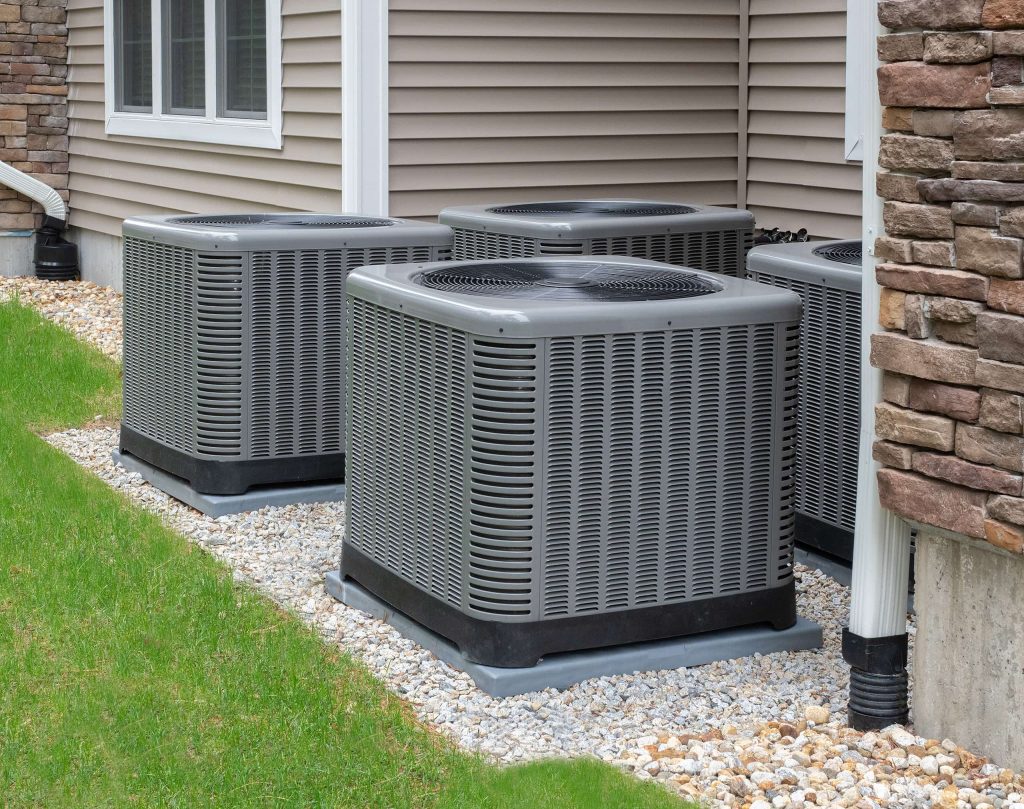How To Know When Your Air Conditioner Needs A Refrigerant Recharge
Air conditioning systems are essential to the comfort of homes and businesses. Without a functioning air conditioner, hot summer days can quickly become unbearable.
Knowing when an air conditioner needs a refrigerant recharge is critical for maintaining optimal temperature control. This article provides insight into how to recognize signs that indicate a need for a refrigerant recharge as well as steps to take in order to ensure proper maintenance of one’s air conditioning system.
The first step in understanding, when an air conditioner may be due for a refrigerant recharge, is learning about what goes on inside it during normal operation. Understanding this process helps homeowners identify warning signs that point towards problems such as low refrigerant levels which could require recharging the unit with more coolant.
With knowledge of these potential issues, individuals can then make sure their cooling systems remain efficient and reliable all year long.
Understanding Air Conditioner Operation
The operation of air conditioning systems is complex and involves a variety of elements. It starts with the exchange of energy, either refrigerant or electricity, to cool an environment.
Refrigerants are liquefied gases used in home cooling units to absorb heat — this process requires pressure for it to work properly. As the liquid passes through the evaporator coil inside the unit, it absorbs heat from the surrounding air which causes its temperature to drop drastically.
The cooled air then flows throughout the building providing comfort and improved ventilation while reducing humidity levels. The efficiency of an air conditioner determines how well it performs based on how much energy it uses when operating at full capacity versus other models that use less energy but may cost more upfront.

Understanding this ratio can help consumers make informed decisions about their system costs and ensure they get maximum energy efficiency out of their purchase. Regular maintenance such as regularly checking refrigerant levels can also help prolong the life span of your HVAC system as well as improve its overall performance over time.
Warning Signs Of Low Refrigerant
It is important to be aware of the warning signs that indicate your air conditioner needs a refrigerant recharge. Some common indications include blocked vents and leaking lines, both of which may cause the unit to not cool as efficiently or effectively as it should.
When inspecting the AC system for any problems, look out for blocked vents and check if there are any visible leaks coming from hoses, seals, gaskets, condensers or other parts of the system. If either issue is found and persists even after thorough cleaning and checking all connections, then it’s likely you need a refrigerant recharge.
In addition to this, an overload on the compressor could also mean that more refrigerant is necessary in order to help dissipate heat more quickly and evenly throughout your space. For these reasons, it is important to keep a close eye on how well your air conditioning system works so that you can make sure it stays running at its best performance level possible.
Factors Affecting Refrigerant Levels
The warm air emanating from your indoor unit and the stillness of a room that should be cool can be indicative signs that your air conditioner may need a refrigerant recharge.
Over time, repeated usage or system leaks can cause reservoir levels to drop below an optimal level, leading to decreased performance and efficiency.
When this happens, it is important to take timely action in order to maximize the amount of comfort you derive from your AC.
The right professional technician will be able to tell you if your air conditioner needs a refrigerant recharge based on their assessment of the current reservoir levels and the overall functioning of your system.
How To Test Refrigerant Levels
Testing the refrigerant levels in an air conditioner is essential for proper maintenance. Proper techniques must be employed to ensure accuracy.
Visual inspection of components such as evaporator and condenser coils, piping insulation, drain pans, and any other related parts should occur before testing refrigerant levels. If any of these components appear damaged or worn out they should be fixed or replaced first prior to conducting a test.
Using specialized tools like thermometers, pressure gauges, and vacuum pumps are necessary to accurately measure the level of refrigerant inside an air conditioner unit. The results from these tests help determine if a recharge is needed or not.
Recharging The Air Conditioner
Air conditioners require regular maintenance in order to function properly. One of the most important aspects of this process is refilling the refrigerant, which should be done at least once every two years or after any major repair.
Refilling the air conditioner can often be a difficult and confusing task if not done correctly; for that reason, it is imperative that a proper diagnosis is conducted before attempting to refill the system with refrigerant.
The first step when recharging an air conditioning unit is to identify whether there has been a leak within the system. A qualified technician will use specialized tools such as pressure gauges and vacuum pumps to detect leaks and measure how much refrigerant needs to be added back into the system.
Once any necessary repairs have been made, the technician can then proceed with refilling the air conditioner with new refrigerant according to manufacturer specifications. It is also important that all connections are checked thoroughly during each stage of the process in order to ensure safe operation of your AC unit.

Benefits Of Regular Maintenance
Regular maintenance of an air conditioner is key to ensuring it runs efficiently and prevents costly repairs. Preventative care can help prolong the life of the unit, reduce energy costs and keep repair bills low.
A refrigerant recharge should be performed at least once a year as part of regular preventative maintenance. This helps maintain peak performance levels while also helping to maximize energy savings.
The technician will check for any sign of blockage or leakage in the system that could lead to decreased efficiency, poor cooling capacity, or even damage to other components within the AC system. If a leak is detected, the technician may recommend replacing certain parts or adding additional coolant before recharging the unit with fresh coolant and performing a full inspection.
Regular servicing can ensure optimal operation which leads to lower utility bills over time due to improved energy efficiency from your air conditioning system.
Read More: Cost For AC Recharge In Phoenix
Troubleshooting Common Issues
Air conditioners are an integral part of many households, providing much needed relief from the heat. Unfortunately, even with proper maintenance and care, air conditioners can require a refrigerant recharge due to leaking components or electrical problems.
To help identify when this is necessary, it is important to troubleshoot common issues that may arise over time.
The first step in determining if your air conditioner needs a refrigerant recharge is to look for signs of leakage around any external components. This includes checking hoses and other areas where liquid or gas might be escaping from the system.
If there appear to be no visible leaks, it’s possible that the issue lies within the internal workings of the unit itself. It could indicate a lack of sufficient pressure caused by low levels of refrigerant or an electrical problem such as a blown fuse or circuit breaker.
In either case, these issues should be addressed promptly by a qualified HVAC technician who can diagnose and repair them accordingly.







